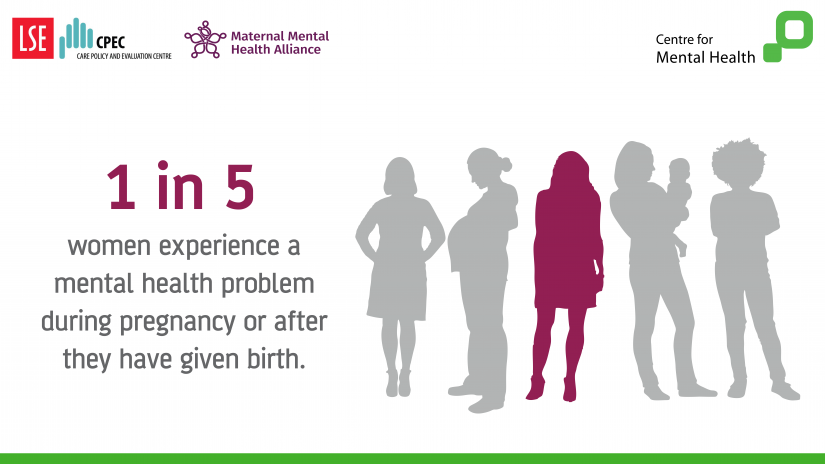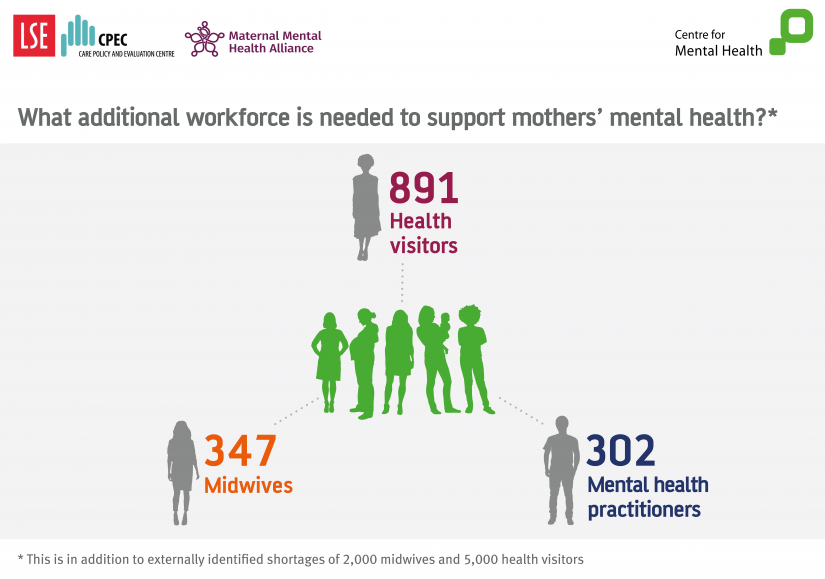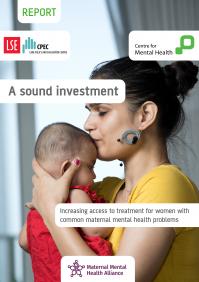Increasing access to treatment for women with common maternal mental health problems
One in five women experience a mental health problem during pregnancy or after they have given birth, with depression and anxiety the most commonly experienced. Maternal mental health problems can have a devastating impact on women and their families. But many find that they have no opportunity to disclose if they are struggling, or to seek help.
There has been significant investment in specialist perinatal mental health services for women experiencing the most complex and severe conditions. However, this leaves a major gap for women with common mental health needs who do not meet the threshold for specialist services.
This briefing paper provides a summary of research by the Care Policy and Evaluation Centre, London School of Economics and Political Science: The economic case for increasing access to treatment for women with common mental health problems during the perinatal period.
The LSE report proposes that health visitors, midwives and mental health practitioners receive specific training and are employed to offer additional support for women’s mental health alongside supporting them and their baby with their physical health and wellbeing. In this integrated service provision model, women would be asked about their mental health and offered low-intensity treatment if they are struggling and feel stressed, anxious or depressed.
However, the model requires additional staff including midwives and health visitors. Shortages of both are currently limiting the ability of these vital services to offer holistic support to women.
For the proposed model to be effective, it must address inequalities in women’s experience of maternal mental health care. We know that women from racialised communities, for instance, have poorer outcomes from maternity services, including higher mortality rates and may find mainstream mental health support less accessible, relevant and helpful. The new model must therefore be developed in an equitable way, including through building alliances with community groups, offering support prior to conception, and adopting trauma-informed approaches.
A sound investment summarises the research and the case for action in the context of this new economic evidence. It explores the current policy context for perinatal mental health care and how the case for investment can be implemented in practice.










